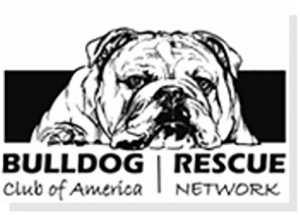AKC Gazette
June 2001
WILLIAM ANDREE
BREEDER CONCERNS
While the Bulldog has for decades occupied a place in the upper echelon of popular purebred dogs in terms of numbers registered, current demand for them is outpacing the supply.
Last year, more than 15,200 Bulldogs were registered by the AKC – roughly 1,500 or 10 percent more than the previous year. But that’s not nearly enough to satisfy the public’s seemingly insatiable demand.
The Bulldog Club of America can take some well-deserved credit for perpetuating and promoting this delightful breed. Its primary mission is to educate, inform and encourage its members to act in the best interest of the breed, all of which translates into producing quality, not quantity.
The vast majority of devoted breeders have succeeded in creating one of the most lovable and distinctive-looking pets imaginable. Bulldog fanciers are flattered that the breed is admired and ranks 21st on the list of the most frequently registered breeds.
However, a number of unintended consequences, mostly negative, can result when breeders try too hard – for selfish reasons – to satisfy an ever-increasing demand.
Among the obvious consequences of popularity and too much success in promoting Bulldogs is an inevitable decline in overall health and temperament standards.
Any breed that reaches its peak in popularity too quickly can just as rapidly fall from favor when unsound and unethical breeding practices become too prevalent. Breeders must take every effort to prevent Bulldogs from becoming a “fad” or “designer” breed.
I do not believe Bulldogs have quite reached that stage. Yet the inflated number of dogs that require the BCA to engage in massive and costly rescue efforts should be cause for alarm.
The coordinator of the BCA’s rescue network reports that the number of homeless and unwanted Bulldogs increased by an estimated 15 percent last year alone. That rate cannot continue without causing unacceptable attrition among even the club’s most dedicated rescue workers.
One single emergency operation last year that resulted in the rescue of 21 Bulldogs required a BCA subsidy of $6,000 to help cover medical treatment (much of it without charge), transportation and boarding expenses.
Although commercial breeders over whom the BCA has little control are no doubt the most flagrant abusers of our breed, reputable breeders also contribute to the problem when pet bitches they co-own or sell are required to produce at least two, sometimes three, litters to satisfy contract obligations.
Whether they are seeking a profitable return or pursuing a record number of champions through an elaborate network of new breeders, such breeders do a great disservice to our breed!
Breeders with a livestock mentality who peddle entire litters to pet shops and furnish both unregistered and registered puppies at dog auctions are, of course, in a class of their own.
As ethical and caring breeders, we are obligated to provide new owners and prospective owners with all the sound advice and guidance we can muster. The future of our breed depends on it.
- William Andree, 204 S. Beach Dr., Monticello, IN 47960.











